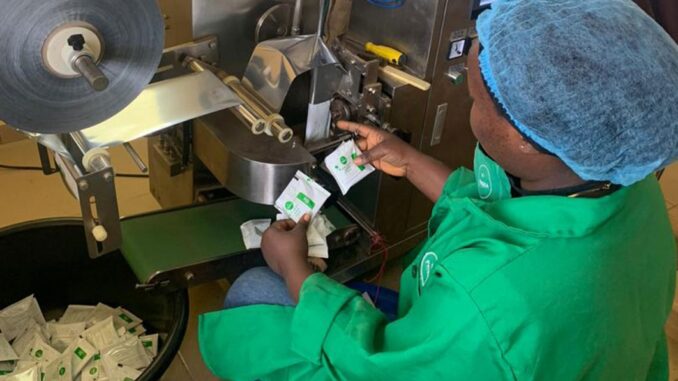
By Femi Ibirogba
May 21, tagged International Tea Day by the Food and Agricultural Organiosation (FAO), is an opportunity to celebrate the cultural heritage, health benefits and economic importance of tea.
Green tea leaves have been explored in Africa and Asia for their health and nutritional purposes, and they constitute sustainable sources of income for women, farmers and small-scale entrepreneurs around the world.
To recognise cultural and economic importance of tea worldwide, the United Nations General Assembly declared 21 May every year as International Tea Day, and called on FAO to observe it yearly.
“Tea production and processing are a main source of livelihood for millions of families, particularly in developing countries. The celebration promotes the sustainable production, consumption and trade of tea, and offers an opportunity for actors at global, regional and national levels to ensure that the tea sector continues to play a role in reducing extreme poverty, fighting hunger and safeguarding natural resources,” FAO said.
As global tea production amounts to over $16.6 billion, the organisation said smallholders are responsible for 60 per cent of world tea production, which supports the livelihoods of nine million smallholder farmers in the four main producing countries of China, India, Kenya and Sri Lanka.
“Tea production and trade contribute to livelihoods, export earnings, food security and incomes in many parts of the world, especially in some of the poorest rural areas.
Tea thrives in very specific agro-ecological conditions and in certain environments which, today, are often impacted by climate change,” FAO said.
Explaining the socio-economic importance of tea, an executive of Sano Foods, Shola Olunowo, said people take tea for several reasons, including to socialise, for warmth and for health reasons.
“From traditional history, people take tea as natural antioxidants that protect from body radicals, boost immune systems, lower cholesterol and help against diseases. Health and wellness seem to be a key reason for tea consumption in the post-COVID-19 pandemic period.
“Beyond the fact that people take tea to be refreshed, relieved and energised, daily consumption of tea to boost body immune systems is gaining more prominence among the populace.”
He added that Sano Foods was promoting new products in line with these new healthy lifestyle shifts, and three organically cultivated plants have been processed into tea to meet the new growing demand, including lemongrass tea, organic basil tea and thyme tea.”
He said if maximised, cultivation of local varieties of tea plants could lift farmers and households off poverty, create circular flow of income and lubricate the economy.
He said Sano Food had been working with Ogun and Oyo States to buy these leaves from farmers to create means of livelihood around tea.
Also, Chief Executive Officer of Friska Farms Nigeria, Usman Imanah, said within the agricultural sector, there remains one cash crop that has not been tapped to its full potential is moringa tea.
He said: “Moringa may be a relatively cheap seedling, but this crop has very high returns on investment. Its root, stem, leaves and seeds all have immense health benefits, touted by health experts.”
He added that studies had shown that the plant contains certain antioxidants and nourishing ingredients, and the leaves contain beta-carotene, protein, potassium, calcium and vitamin C.
“It can also be used in the production of herbal teas. Scientific studies have also shown that some plant chemicals in the leaves may help the body process sugar and control the release of insulin,” he said.
An agro-allied entrepreneur, Mr Adebayo Osiberu, saidmoringa is called a superfood, adding, “The leaf contains more protein than any other leaf. Abroad, moringa is an ingredient in smoothies, thus the usage of moringa is extensive.
“Moringa is a herb and what we have done is to add so many other things into leaves such as pumpkin leaf, bitter leaf, lemongrass, hibiscus (Zobo), ginger and so on in a tea bag, which cannot be overdosed.”
END

Be the first to comment